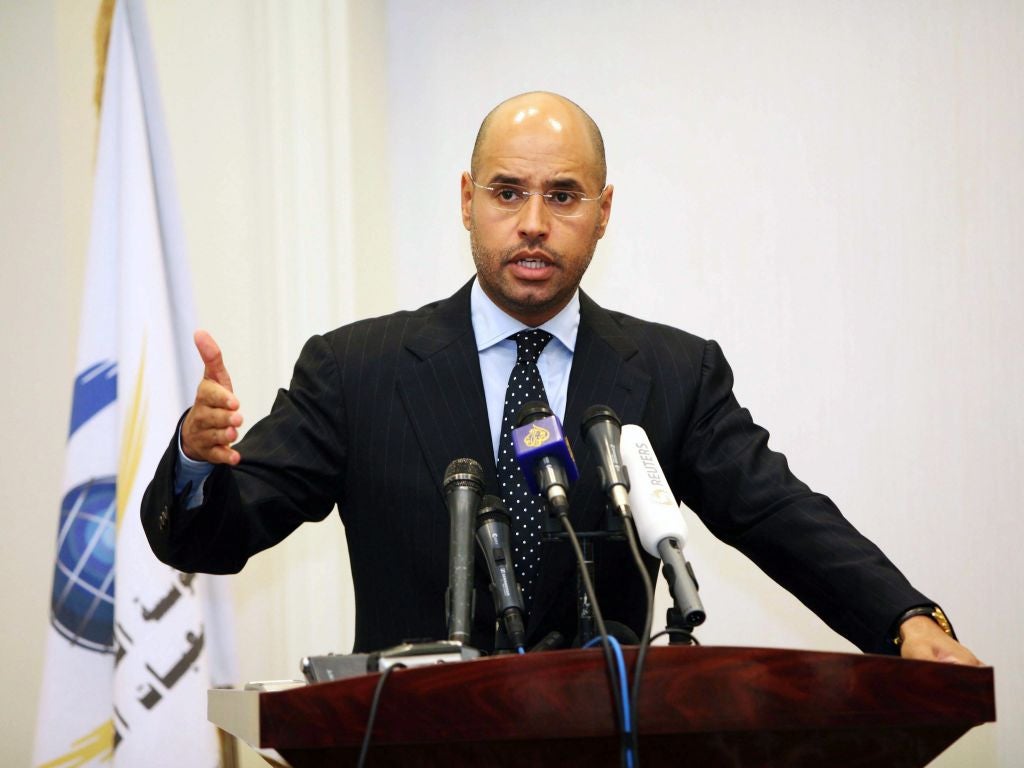Verdict on Gaddafi exposes roles of Blair, LSE and Oxford
At the time Tony Blair was anxious to secure a rapprochement with the Libyan regime

The call from the Foreign Office to Professor Valpy FitzGerald, the head of Oxford's Department of International Development, came in the spring of 2002.
Would he please consider taking a certain student, the son of the Libyan dictator, to help the British Government ingratiate itself with his father, part of a bigger project to bring the Gaddafi regime in from the diplomatic cold.
"He was contacted by a senior civil servant at the FCO 'to enquire if they could admit Saif to the MSc in Development Economics, or failing that to the MPhil in Development Studies'," reveals Lord Woolf, in his report into how the London School of Economics later came to accept Gaddafi's son Saif as a student, as well as a £1.5m donation from Saif's foundation.
"It was made clear, he told me," said Lord Woolf, "that the FCO would appreciate help in this case since Libya was opening up to the West again." The professor told the civil servant that "the bottom line was whether (Saif) had adequate prior academic qualifications".
After the FCO had provided Professor FitzGerald with evidence of Saif's academic qualifications, Oxford rejected him and the matter was dropped. At the time, Tony Blair was anxious to secure a rapprochement with the Libyan regime. Mr Blair had sent the Libyan student a signed letter on Downing Street notepaper thanking him for showing him "your interesting PhD thesis".
The report claims that on the international academic circuit the LSE's connections with the Gaddafi regime led to it being called "the Libyan School of Economics". Lord Woolf said that "had Saif proved to be the reformer he was predicted to become, the LSE might have been lauded as having contributed to a positive change on the world stage". But the LSE's links with Libya "were allowed to grow, unchecked and to a degree unnoticed until their effect was overwhelming".
Lord Woolf is highly critical of Professor David Held, who became Saif's informal academic adviser and who helped broker the £1.5m donation, for failing to give enough information to the LSE Council, its sovereign body, about the money. "The presentation of the donation to council involved a chapter of errors," he said. "The true source of the money which the LSE agreed to accept has never been established."
He said there was a risk that it was to come from private companies operating in Libya "to gain Saif's favour and influence the award of contracts". The report lists links that followed Saif's acceptance as a student: Sir Howard Davies, the director of the LSE who resigned over the affair, became Mr Blair's economic envy to Libya.
Lord Woolf said the LSE should develop an embedded code of ethics for dealing with such issues. Saif was rejected by the university's government department but was accepted to study for a M/Phil/PhD in philosophy.
Lord Woolf had "concerns about the tone and content of the presentation Professor Held gave" at the final meeting agreeing the donation. Those present said he was "quite emotionally connected to Saif" and that in his presence "one couldn't have said a word about Saif Gaddafi".
The LSE said last night it would accept all Lord Woolf's recommendations.
At centre of the row: The LSE adviser
Professor David Held became Saif Gaddafi's academic adviser during the Libyan's spell at the LSE. An expert in international relations, he will be leaving the LSE at the end of the year to join Durham University.
It was his request that led to the donation of £1.5m from Saif Gaddafi's charitable foundation to the LSE. Professor Held believed at the time Saif was a force for modernisation.
Join our commenting forum
Join thought-provoking conversations, follow other Independent readers and see their replies
Comments